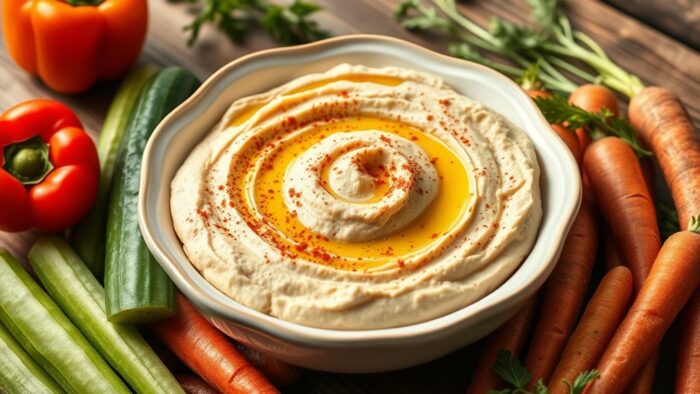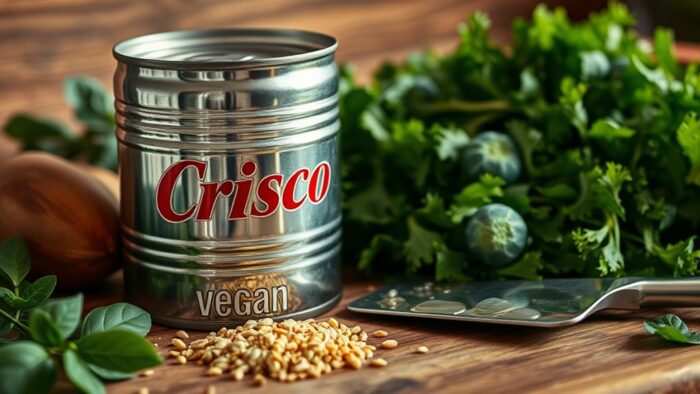Is Baklava Vegan?
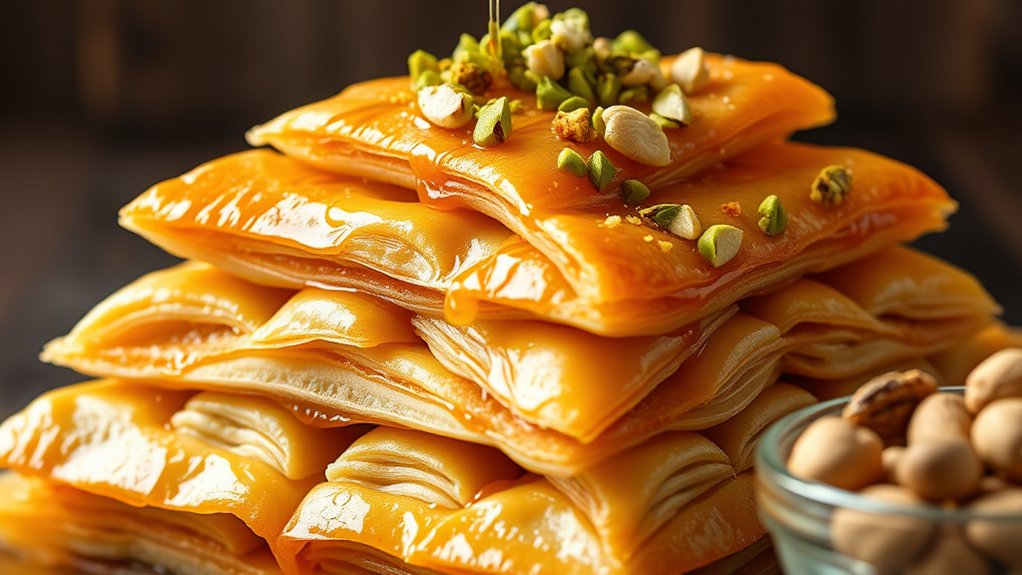
If you’re a vegan or simply curious about how to enjoy traditional treats without compromising your lifestyle, you might be wondering about baklava. This sweet, flaky dessert is beloved worldwide, but its typical ingredients can raise some concerns for those avoiding animal products. Traditional baklava often features honey, butter, and even animal-derived components in the phyllo dough, making it unsuitable for a vegan diet. But don’t worry—there are ways to savor this delectable dessert while keeping it plant-based! Let’s check out the alternatives that can help you indulge in baklava without any guilt.
Non-Vegan Ingredients in Baklava
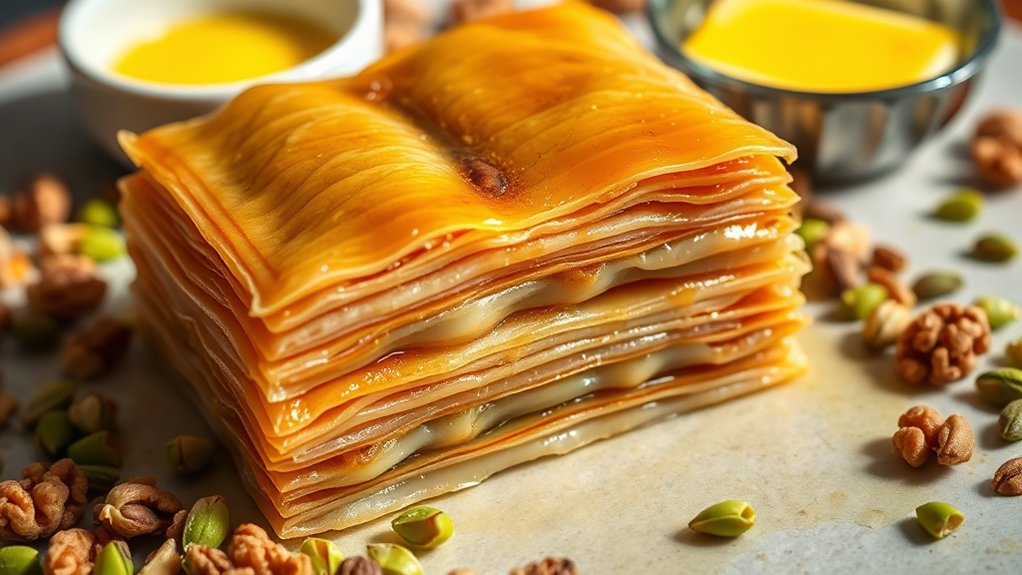
When checking out baklava, it’s important to understand that traditional recipes often include non-vegan ingredients. One of the main components is butter, which is used as a fat source in the layers of pastry.
Some recipes may also incorporate an egg wash to improve flavor and texture.
Another common sweetener in baklava is honey, which raises ethical concerns for those following a vegan lifestyle due to the exploitation of bees.
Additionally, when it comes to phyllo dough, it’s essential to check the ingredient list, as some brands may contain additives like L-cysteine or glycerol, which can be derived from animal sources.
Moreover, certain baklava recipes might include dairy products such as milk or cream, further complicating the vegan status of the dish.
Lastly, cross-contamination in kitchens that handle non-vegan ingredients can pose a risk, so it’s wise to inquire about preparation methods if you’re trying to maintain a vegan diet.
Understanding these factors can help you make informed choices about baklava and its ingredients, confirming that your culinary experiences align with your dietary preferences.
What Could Stop Baklava Pastry Being Vegan?
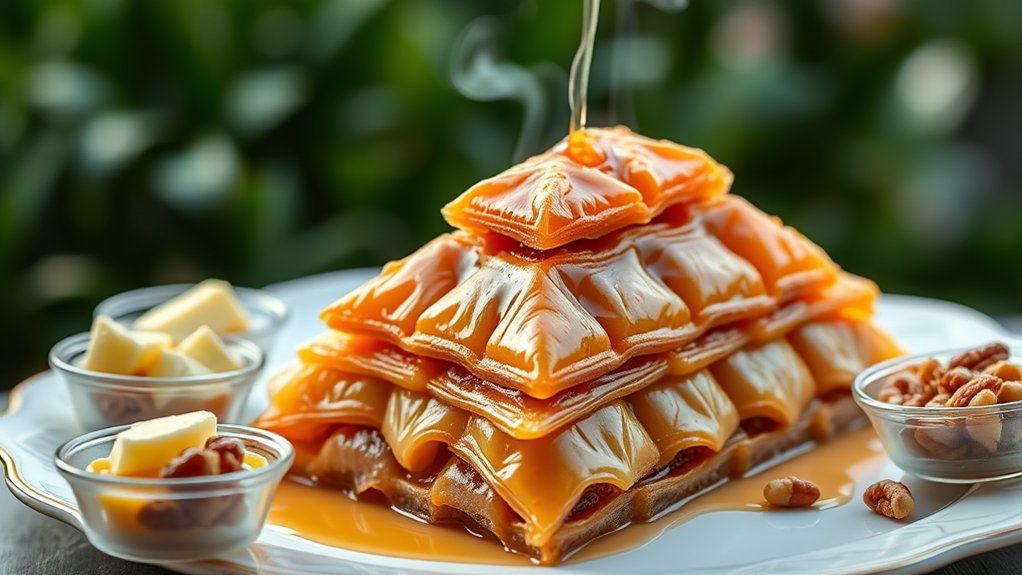
When it comes to enjoying baklava as a vegan, there are several important factors to consider that could affect its suitability for your diet.
Firstly, phyllo pastry, a key component of traditional baklava, may contain non-vegan ingredients. For example, some phyllo dough recipes include egg yolk, which makes them unsuitable for vegans. It’s crucial to check the ingredient list when purchasing phyllo dough. Opting for brands that specifically label their products as vegan can help make sure you’re making a compliant choice.
Secondly, many baklava recipes use butter or other animal-derived fats for greasing the pastry layers. To keep your baklava vegan, look for plant-based alternatives, such as coconut oil or vegetable oil, which can effectively replace butter.
Another critical ingredient to watch out for is honey, commonly used in baklava syrup. Since honey is a bee product, it raises ethical concerns for many and isn’t considered vegan. Instead, you can use alternatives like maple syrup or agave nectar to sweeten your baklava without compromising your vegan values.
Additionally, some commercial phyllo doughs may contain animal-derived additives, such as L-cysteine. This ingredient is sometimes used to improve dough texture, so it’s always a good idea to read labels carefully. Ingredients like glycerol and glycerine can also come from animal sources, so make sure to verify their origins.
What Could Stop Baklava Fillings Being Vegan?
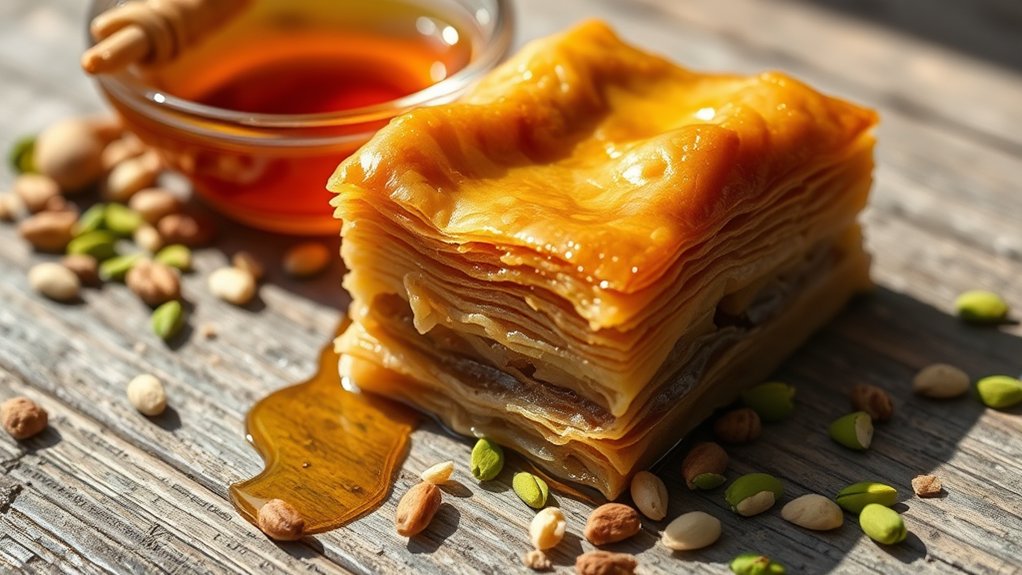
Baklava is a delicious dessert known for its flaky layers and rich fillings, but if you follow a vegan diet, there are some important considerations to keep in mind. One major concern is honey, which is a common ingredient in many baklava recipes. Since honey is produced by bees, it isn’t considered vegan, and opting for alternative sweeteners is essential.
Additionally, while nut fillings are often a key component of baklava, it’s important to check that they don’t contain any non-vegan sweeteners or additives. Always read labels or ask about ingredients to make certain everything aligns with a vegan lifestyle.
Another crucial aspect to consider is the use of butter or dairy fats in the layering of baklava. Traditional recipes typically call for these animal products, so using plant-based oils, such as olive oil or coconut oil, is a great substitute that maintains the dish’s texture and flavor.
Even the filo pastry used in baklava can present challenges. Some commercially prepared versions may contain L-cysteine, an additive derived from animal sources. It’s wise to look for brands that explicitly state their products are vegan to avoid any surprises.
Lastly, certain flavorings and extracts used in baklava might contain animal-derived components. To make certain your baklava is fully vegan, always check the vegan status of these ingredients.
What Could Stop Baklava Syrup Being Vegan?
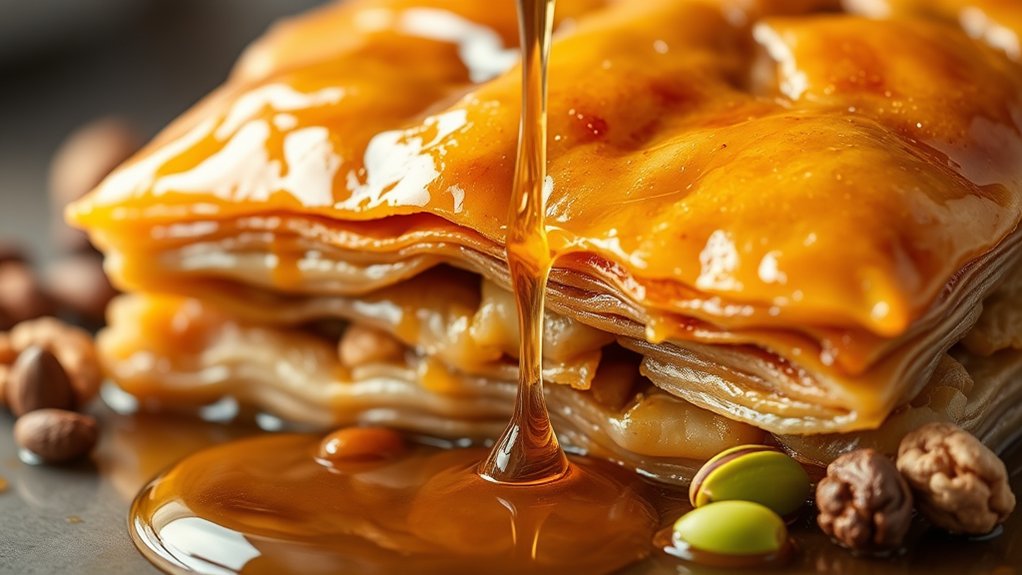
Baklava syrup can present challenges for those following a vegan diet, primarily because traditional recipes often include honey. Honey is an animal product, which is a key concern for vegans who choose to avoid all animal-derived ingredients.
Even commercially available syrups may contain non-vegan components such as glycerin or L-cysteine, unless they’re clearly labeled as plant-based. Flavorings like rosewater and orange blossom water are generally vegan-friendly, but it’s still important to check for any additional preservatives that may not meet vegan standards.
When making homemade syrup, the basic ingredients are typically just sugar and water. However, it’s crucial to make certain that the sugar used hasn’t been processed with bone char, a method that would render it non-vegan.
To enjoy baklava while adhering to a vegan lifestyle, consider using alternatives to honey in syrup recipes, such as agave nectar or maple syrup. Always read labels carefully and opt for products that are explicitly marked as vegan to avoid any unintended animal-derived ingredients.
Vegan Recipe Variations and Store-Bought Options
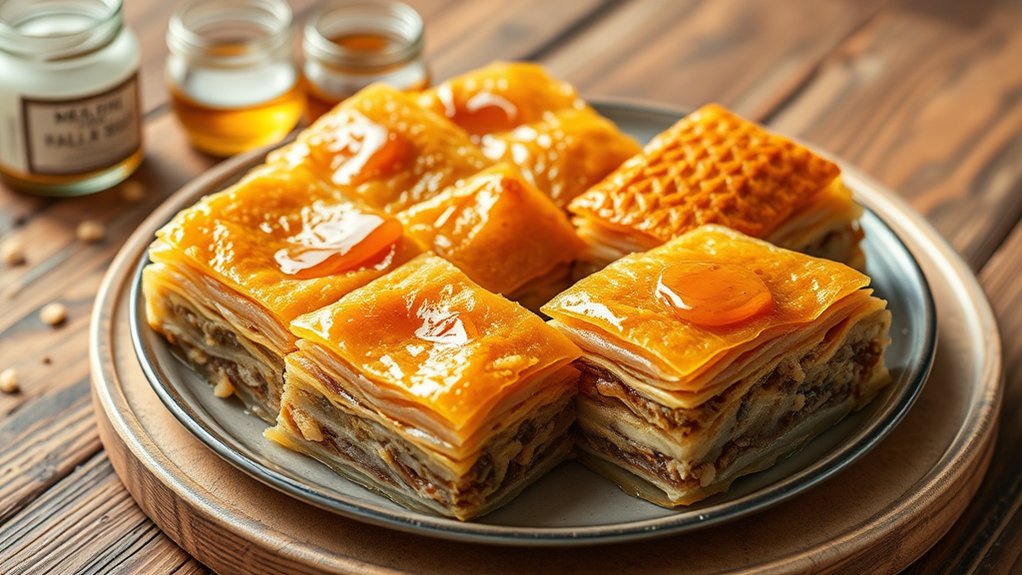
If you’re looking to enjoy baklava while following a vegan diet, there are several effective ways to make this traditional dessert plant-based. A straightforward vegan baklava recipe can substitute traditional butter with olive oil or vegan butter, which helps achieve that desirable flaky texture when using phyllo dough.
For the sweet element, consider using plant-based sweeteners such as maple syrup or agave nectar in place of honey.
If you prefer a quicker option, many brands offer store-bought baklava labeled as vegan. It’s important to read the ingredient list to make certain it meets your dietary preferences. Additionally, some brands provide gluten-free phyllo dough, which is beneficial for those with gluten sensitivities.
Making baklava at home allows you to have full control over the ingredients, confirming that every component aligns with your dietary choices.
With these options, you can indulge in this classic treat while adhering to a vegan lifestyle. Enjoy your baklava with the confidence that it meets your values and cravings!



